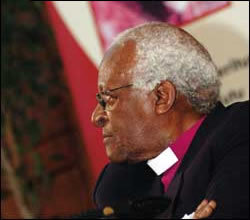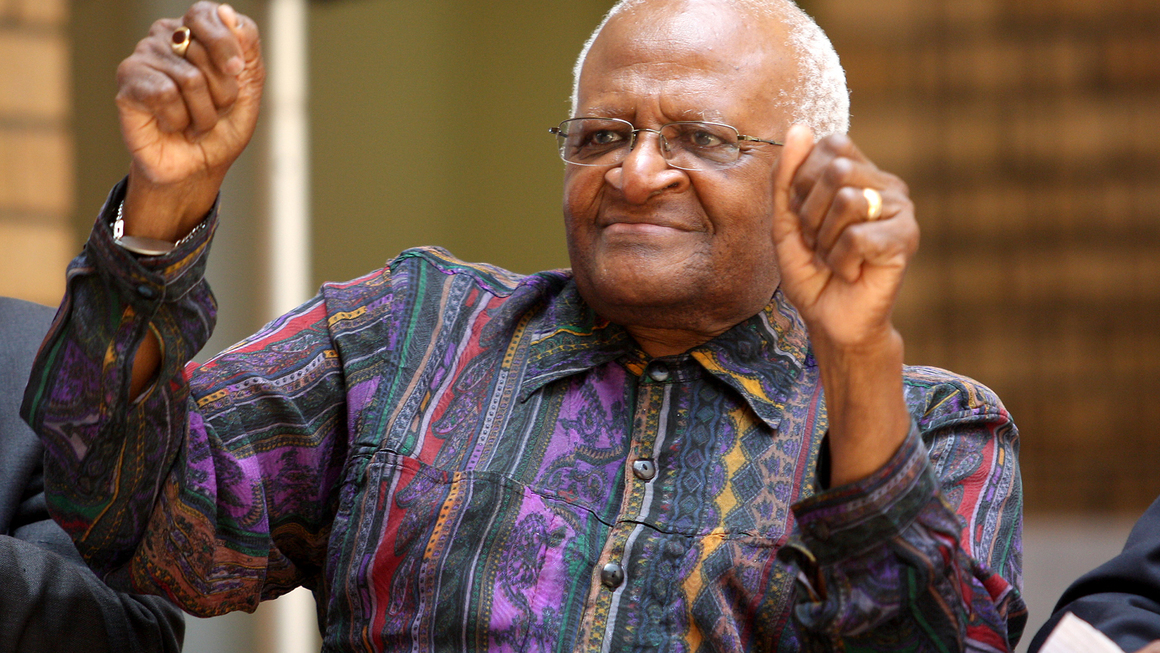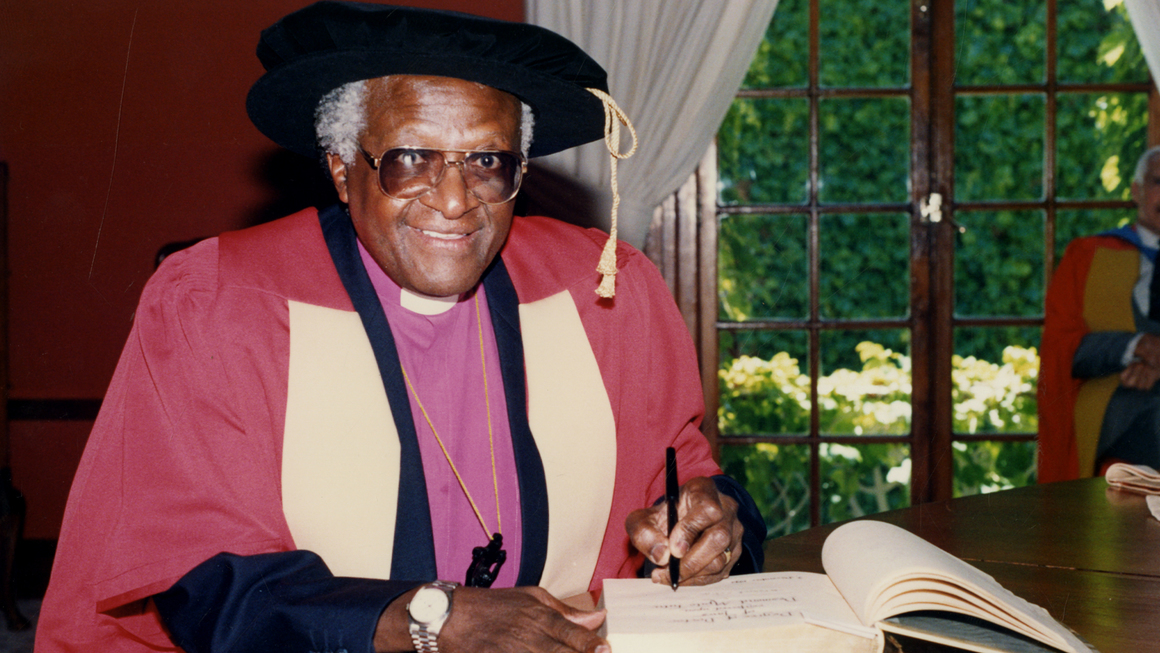Tutu stakes new claim for Steve Biko's legacy
02 October 2006
Archbishop Emeritus Desmond Tutu remembers the occasion in 1972 when he was travelling through Nigeria, flying from Lagos to Jos in the country's north.
On boarding the plane, Tutu, then associate director of the Theological Fund of the World Council of Churches, had the most pleasant of surprises. To his delight he discovered that all the crew members of the flight, including the pilot and his co-pilot, were black.
"I grew inches with pride," he told the packed Jameson Hall last week, where he was delivering the 7th Steve Biko Memorial Lecture. "[The crew] contradicted everything that apartheid South Africa asserted about blacks."
The take-off was faultless, and Tutu settled in for an enjoyable flight. But not too much later the plane hit turbulence, jerking uncomfortably from side to side.
It was then - even he was shocked by the moment - that an unguarded thought jumped into Tutu's head: There is no white person in the cockpit; can these black pilots land the plane safely? (Cue laughter from the Jameson crowd.) Just for that second, Tutu believed apartheid South Africa - blacks were inferior.
"The trouble is that I had internalised what others had decided was to be my identity," Tutu said. "That's what Steve diagnosed about us."
But that was 1972. Thirty-something years and a different world ago. Things have changed since then. Surely.
Perhaps not, suggested Tutu.
Something is amiss in South African black communities, he said. Murder, child abuse, xenophobia, not-so-civil, civil servants, a lack of respect for the law, and a lack of respect for the property of others and self, all these plague black communities.
It's almost a throwback to the days of apartheid when black constables and black mining clerks mistreated other blacks simply to curry favour with their white bosses, noted Tutu.
"We don't respect one another because we don't respect ourselves firstly," he said. "We despise ourselves. We really hate ourselves."
Perhaps, he added, Black Consciousness had not completed the work it had set out to do. But there's still time.
South Africa holds so much promise. The country is a model of peaceful transition to many other nations reeling from violence and political troubles.
"The best memorial to Steve Biko would be a South Africa where everyone respects themselves, has a positive self image filled with a proper self esteem and holds others in high regard," Tutu wrapped up.
"We South Africans - black, white, all of us together - we are indeed a scintillating success waiting to happen."
Cue the applause.
(Archbishop Emeritus Desmond Tutu's lecture can be found here.)
 This work is licensed under a Creative Commons Attribution-NoDerivatives 4.0 International License.
This work is licensed under a Creative Commons Attribution-NoDerivatives 4.0 International License.
Please view the republishing articles page for more information.
Archbishop Emeritus Desmond Tutu: 1931–2021
On Sunday, 26 December 2021, the University of Cape Town learned of the passing of Archbishop Emeritus Desmond Tutu, 90. We say goodbye to a man who taught us the power of joy to fight injustice and evil.
“Archbishop Emeritus Tutu, as he graciously aged, never lost his vision for a just and free South Africa.”
– Archbishop Emeritus Njongonkulu Ndungane
Stories from the UCT archives

It took UCT seven years to award the second Chancellor's Award for Outstanding Leadership in Africa - a reminder not only of the prestige of the accolade, but also of how few and far between worthy recipients have been.
12 Dec 2011
Caught up in the demands of their studies, students are often slow to volunteer for extra-curricula activities. To counter this, the university's student leadership hosted a week-long drive to foster a sense of social responsibility among their peers.
05 Sep 2011
In his valedictory lecture at UCT's medical school on 13 February, Professor Solomon Benatar of the Department of Medicine in the Faculty of Health Sciences, stated that the health of whole populations - in South Africa and globally - is <i>the</i> major crisis and challenge for humanity in the 21st century.
20 Feb 2008
With workmen in the background reminding guests of the newness of the hosting Wolfsohn Pavilion, the mood at the IIDMM headquarters was festive last Wednesday as Archbishop Emeritus Desmond Tutu and his wife Leah arrived to open an HIV centre there named in Tutu's honour.
09 Feb 2006








































